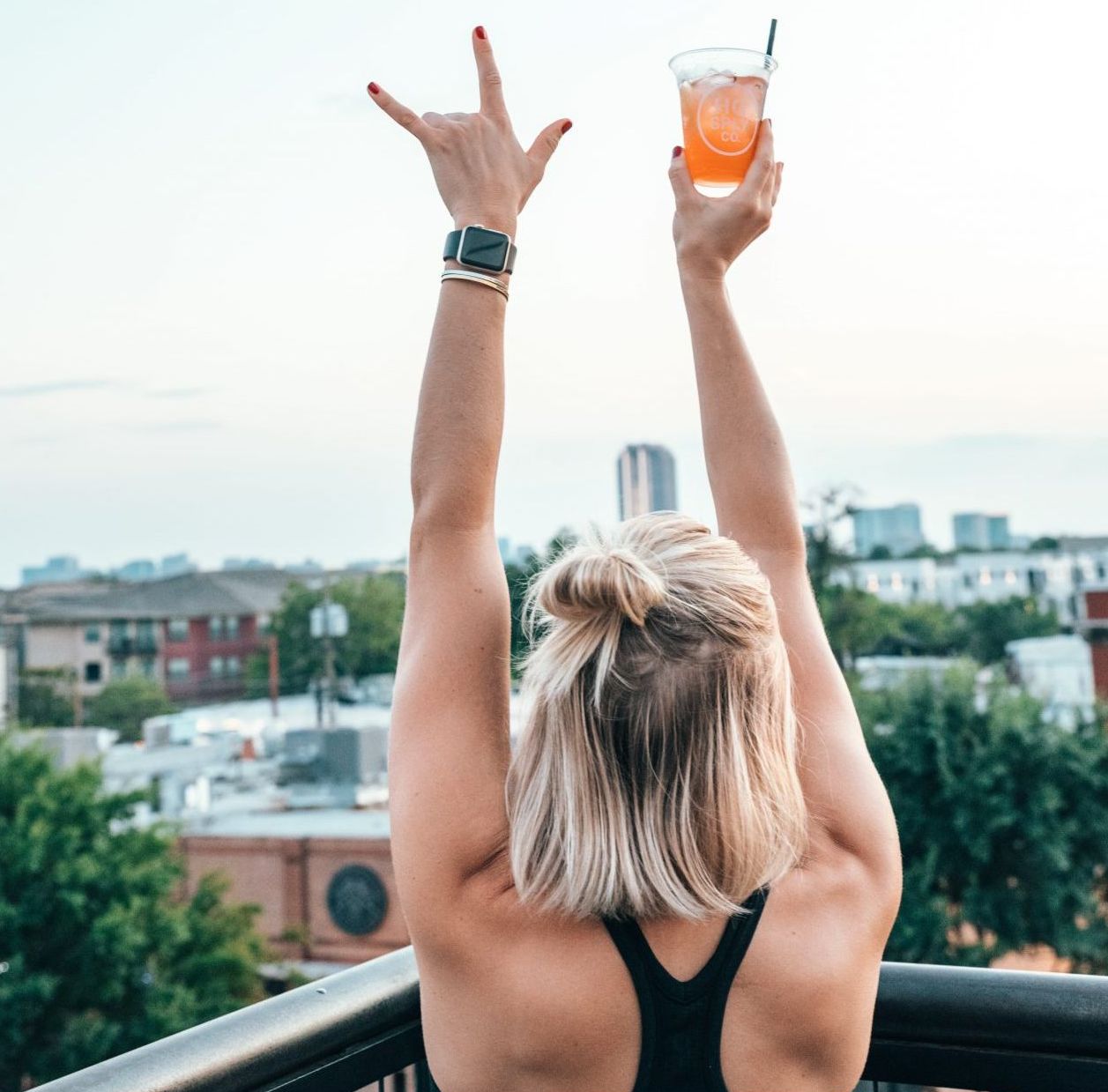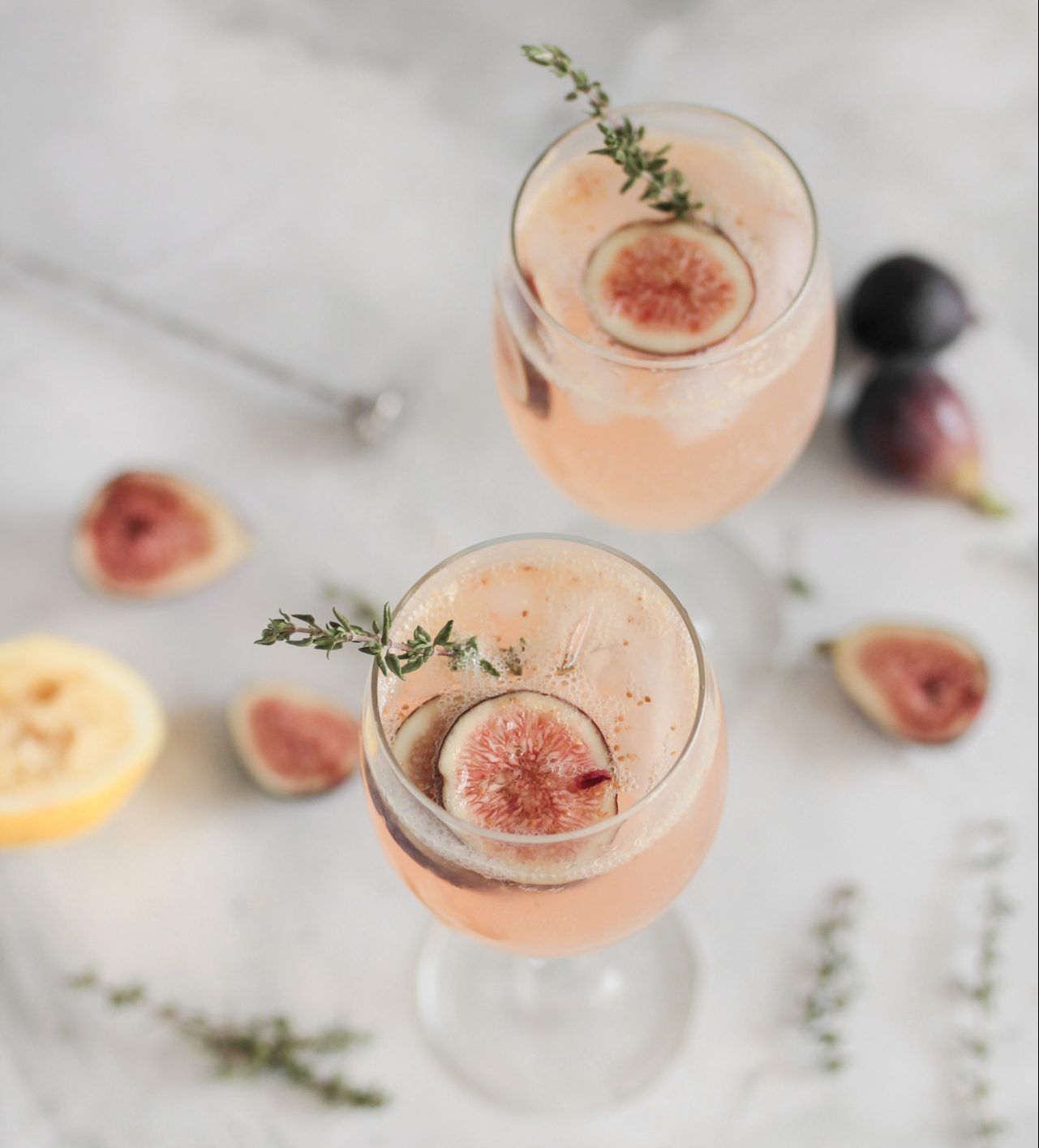We know that boozing can impact performance in the gym but if you do want to have your martini and drink it, when’s best to have a tipple?
Just because you want to get stronger, faster or better at moving, you don’t necessarily want to live a monastic existence. If you fancy an alcoholic drink but still get strong, how can we plan our workouts and drinking sessions so that we’re not wasting all our efforts?
2020 was undoubtedly the year of the home workout, with UK sales of home exercise equipment spiking by 5,800% up to July; it was also the year that many of us drank more than usual, with a recent study finding that lockdowns triggered a 19% increase in alcohol consumption for every week under restrictions. With nowhere to go and nothing much to do, it’s no wonder that many of us found ourselves going between weights and wine. If that comes as a massive surprise, it shouldn’t. According to research from the University of Miami, frequent exercisers actually tend to drink more on average than non-exercisers.
Does that suggest that drinking doesn’t really have much of an impact on our gains?
You may also like
How to drink water during a workout
“Alcohol can impact our ability to perform at our best during a workout the day after the night before,” says specialist registered dietitian, Nichola Ludlam-Raine. “As a direct effect, alcohol consumption can impact our cognitive abilities – such as our coordination, which could be dangerous if we’re using heavy equipment. Indirectly, as alcohol is a diuretic, alcohol consumption can also cause dehydration. In order for our bodies to function optimally, we need to be well hydrated to regulate blood flow which transports oxygen throughout the body – essential for fuelling workouts!”
With that in mind, here’s what drinking on certain days around your workout can do:

DRINKING ON THE DAY OF A WORKOUT
A study published in the Journal of Science and Medicine in Sport found that boozing can cause significant delays to muscle recovery. Participants had to do a series of leg exercises before having 90 minutes to drink either straight orange juice or vodka orange. Over the next three days, the alcohol group reported not feeling any kind of delayed onset muscle soreness (DOMS) compared to the OJ group – but their loss of strength in a subsequent series of tests was up to 2.8 times greater. It’s important to note that this study involved pretty big men drinking pretty large amounts of booze so while the results are interesting, they’re not tailored to women or smaller people. However, it does still suggest that booze can delay how we recover and experience fatigue when we drink alcohol soon after working out.
Another study found that muscle repair was slowed down significantly when participants boozed heavily within eight hours of a workout – particularly if they also didn’t consume any protein. But researchers also found that even if they did consume adequate protein post-workout, it wouldn’t be enough to override the negative impact of alcohol on the muscle repair process.
The conclusion? Boozing soon after working out can impact how you recover for up to three days.
You may also like
This is why we tend to drink more alcohol in winter
DRINKING ON A REST DAY
When we rest between workouts, our myofibrillar protein synthesis (MPS) is elevated. That’s where protein is produced to repair muscle damage caused by intense exercise and it’s that process that helps us to grow muscle mass and gain strength. As MPS increases, what we consume becomes more important because the body needs the right nutrients to help the repairing process. If we drink alcohol, that factors into the MPS process too; boozing can interfere with muscle recovery and regeneration after training. Our body has a lot to do, post-training, including “stimulating the synthesis of muscle proteins, restoring fluid levels and replenishing glycogen stores,” PT SamBhaumick explains. “Impaired recovery from alcohol is dose-dependent. The more you drink, the bigger the impact on recovery.”
Then we come onto hormonal disruptions. A crucial element of becoming stronger is getting enough shut-eye; when we sleep, our bodies secrete a growth hormone that stimulates protein turnover and MPS, as well as helping to regulate metabolism. Not only does boozing increase our levels of the stress hormone cortisol (which can reduce the levels of growth hormone by as much as 72%), but it also often leads to disrupted sleep. Failure to drift off properly hampers our growth hormone production by as much as 70%.
The takeaway? Drinking excessive quantities of alcohol is going to screw with you regardless of what you do but rest days are as important as working ones because it’s when you stop moving that your body has a chance to grow muscle. Give your muscles a proper day off on those days by loading up on nutrient-dense food, getting a good sleep and going easy on the alcohol.

DRINKING THE DAY BEFORE A WORKOUT
Exercise on a hangover at your peril. Not only may it limit performance but according to Ludlam-Raine, it can mess with recovery too. “One of the jobs of our liver is to metabolise (breakdown and excrete) alcohol, however, while this is happening, it is unable to produce sufficient levels of glucose – which is essential to fuel and help recover from a workout.”
But Bhaumick believes that “it’s good to move the day after drinking alcohol; if you wake up in a relatively decent condition then any associated risk from training is lowered. However, it’s important to know that everyone reacts differently to alcohol so you should always listen to your body and then decide if you should train.”
Both experts recommend avoiding high intensity or strenuous sessions and prioritising hydration as hard workouts may do more harm than good to an already dehydrated system. But that doesn’t mean that you shouldn’t be moving at all. Go for a brisk walk or gentle jog, and plump for yin yoga over intense workouts, which supports our recovery processes, calms the nervous system and helps us to release “happy hormones” (serotonin and dopamine).
Bhaumick advises that “moving in general releases endorphins, improves mood and increases oxygen flow to the brain so it is entirely possible that a session can boost energy and leave you feeling slightly better. Drinking a lot of water before, during and after your session is important too as you don’t want to train without replenishing fluid loss.”
In other words, if you feel OK, go for it, but if you’re feeling ropey, really think about how much benefit you’ll get from working out.
You may also like
Hangover-free wine is in development, and we couldn't be more delighted
SO, ARE DRINKS OFF THE MENU?
Professional athletic coaches and body transformation PTs might encourage clients to ditch the drink for good. Plenty of people go teetotal while training for marathons and other endurance races to give themselves the best chance of success and recovery. If, however, you like working out as part of a balanced lifestyle – that includes the odd glass of wine or beer – then enjoy it for what it is.
“I don’t believe complete restriction is needed for everyone, however, if you find you are becoming reliant on alcohol, then yes – abstaining can of course be important,” concludes Ludlam-Raine. “For those who enjoy a drink from time to time, I recommend consuming no more than 14 units per week, spread throughout the week (with at least three alcohol-free days), as advised by the NHS. One unit is the equivalent (approximately) of ½ pint beer, one small glass of wine or 25ml of spirit.”
HOW TO GET STRONG AND ENJOY ALCOHOL
1. Drink plenty of water during and after boozing: If you can, try to have a glass of water in between drinks to keep hydrated. Be sure to drink plenty before bed and when you wake up the next morning.
2. If you’re tired, have a rest: Alcohol can make us feel fatigued well into the next day. Avoid intense workouts and heavy weights – you won’t be able to perform at your best and at worst, you could run the risk of an injury. If you can, take a rest day or engage in active recovery; go for a long walk or enjoy some slow and stretchy yoga.
3. Prioritise protein: There’s nothing like a plate of chips or toast when you’re drunk or hanging but see if you can add some protein in there to help with muscle recovery. Try adding nut butter to your toast or adding a fried egg to your chips.
4. Plan your drinking days: If you do want to booze, it might be a good idea to plan the days that you intend to let loose. By doing that, you can plot your workouts around those days so you’re not engaging in vigorous exercise just before or after. If you’re planning a messy session, give yourself a couple of days off strength training so that you’re not impacting recovery or putting your next workout at risk.
Follow @StrongWomenUK on Instagram for the latest workouts, delicious recipes and motivation from your favourite fitness experts.
Images: Unsplash
Source: Read Full Article
